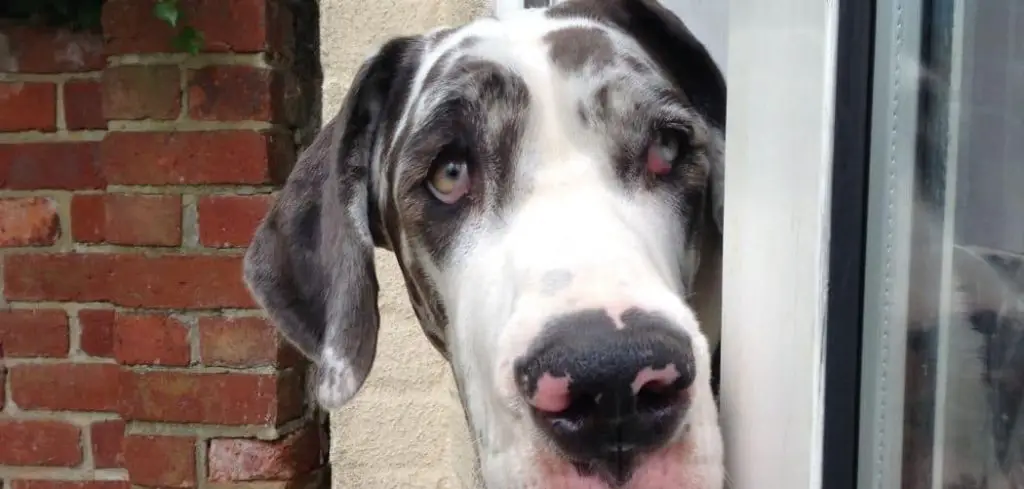Seeing your dog weak, refusing food, and showing fresh blood in their mouth is extremely alarming. These symptoms could point to a serious underlying condition that needs immediate attention.
We outline the common causes of a dog being weak, not eating, and having fresh blood in the mouth, what you can do at home, and when to seek veterinary help.
Dog Weak, Not Eating and Fresh Blood in The Mouth — Why It Happens
When your dog is weak, won’t eat, and you see fresh blood in their mouth, the situation is potentially critical. Causes range from dental trauma and oral tumors to internal bleeding or toxin ingestion. Infections, immune-mediated diseases, or severe gastrointestinal issues may also present with blood in the mouth, especially if accompanied by vomiting. These signs should never be ignored, especially if they appear suddenly.

Dog Weak, Not Eating and Fresh Blood in The Mouth: Common Causes
Mouth Injuries or Oral Trauma
Biting on sharp objects, fractured teeth, or chewing something abrasive can injure your dog’s mouth.
This may result in visible fresh blood, especially after eating or barking.
Pain or discomfort from the injury often leads to your dog refusing food and becoming lethargic.
While minor wounds may heal, deep cuts or embedded objects can lead to infection or worsening bleeding.
Advanced Dental Disease
Severe periodontal disease or infected gums can cause fresh bleeding in the mouth.
This often comes with foul odor, visible tartar, and swollen or receding gums. Dogs with oral pain tend to eat less or stop eating entirely.
Over time, the infection can spread, impacting overall energy and leading to weakness.
Gastrointestinal Ulcers or Bleeding
Stomach or esophageal ulcers can cause internal bleeding that appears in the mouth after vomiting.
If the vomit is mixed with bright red blood, it may have originated higher in the digestive tract. Dogs experiencing this often show fatigue, poor appetite, and signs of dehydration.
This is a medical emergency and requires prompt veterinary intervention.
Read more: Dog Diarrhea and Not Eating (Causes and when to worry)
Poisoning or Toxin Ingestion
Certain poisons, including rat bait or caustic chemicals, can cause internal bleeding.
Fresh blood in the mouth may be one of the first signs. Weakness, shaking, vomiting, and collapse may follow.
This is extremely time-sensitive and often fatal without immediate treatment.
Oral Tumors or Growths
Cancerous or benign growths in the mouth may rupture and bleed.
Dogs may struggle to chew, drop food, and become increasingly weak if they stop eating.
These tumors can grow quickly and cause complications, especially if they interfere with swallowing or breathing.
Immune-Mediated Conditions
Diseases like Immune-Mediated Thrombocytopenia (IMT) reduce the blood’s ability to clot.
Even minor oral injuries can lead to significant bleeding. Dogs with IMT may bruise easily, bleed from the gums, and appear suddenly weak and lethargic.
These disorders can be life-threatening and need urgent veterinary care.
What to Do
Start by staying calm and gently inspecting your dog’s mouth — if they allow it. Look for obvious injuries, objects stuck between teeth, or signs of bleeding gums.
Avoid trying to remove anything embedded or applying human medications. Instead, keep your dog comfortable and hydrated if possible.
Do not force food or water. If your dog is willing to lick ice cubes or a small amount of water, that’s a good sign.
Note when the symptoms started, how much blood is present, and whether your dog has vomited. These details will help your vet act quickly.
Avoid physical activity, keep your dog calm, and transport them to the vet as soon as possible.
When to Call or Visit Your Vet
Seek veterinary help immediately if:
Your dog is extremely weak or collapsing
You see any amount of fresh blood in or around the mouth
Your dog refuses to eat or drink for more than 12–24 hours
There is vomiting or diarrhea with blood
Breathing becomes labored or noisy
The gums appear pale, blue, or very red
There is visible swelling in the mouth or jaw
Don’t wait to see if things improve — many conditions involving blood in the mouth are time-sensitive.
Read more: Dog Throwing Up Blood and Not Eating (What it could mean)
Key Takeaway
A dog who is weak, not eating, and showing fresh blood in the mouth should be evaluated by a veterinarian as soon as possible.
While some cases may stem from minor injuries, others signal serious internal problems or life-threatening diseases. Early action could save your dog’s life.
Stay calm, gather details, and prioritize medical care — your quick response matters most.
